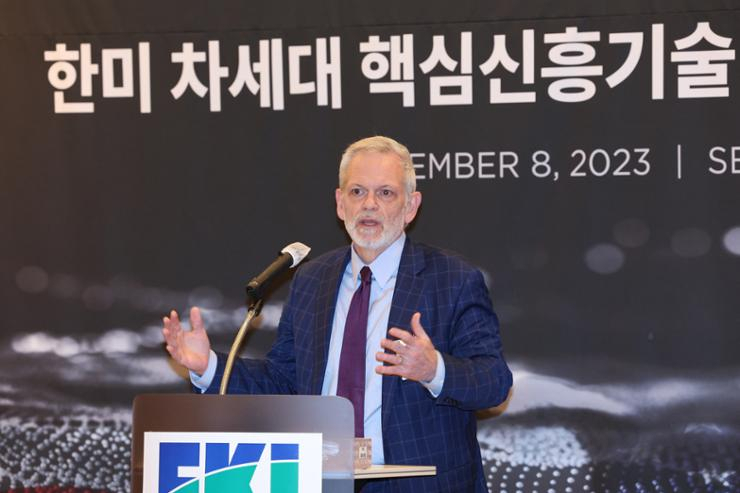US Chamber criticizes Korea's move to pass platform law
Korean authorities push back, vowing to control monopolistic activities by big platform operators
By Jie Ye-eunPublished : Jan. 30, 2024 - 16:10

The US Chamber of Commerce has openly opposed a proposed act aimed at preventing unfair market activities by major online platform players, voicing concerns over the country’s apparent rush to pass the law.
Charles Freeman, senior vice president for Asia at the US Chamber, issued a statement warning Seoul on the push for the rules on Monday and called for transparency and open dialogue with Korea’s antitrust regulator that “an action of this magnitude requires.”
"It is critical that the full text of any proposed legislation be made publicly available, and that the government of Korea provide ample opportunity for engagement with a range of stakeholders, including the American business community and the US government," the statement read.
South Korea's Fair Trade Commission is moving to legislate the Platform Fair Competition Act to regulate monopolistic practices by dominant online and mobile platform players whose influence has been growing at an alarming rate here.
Industry sources forecast the regulator will likely unveil the platform bill within the next month, and major platform operators, including US tech giants Apple, Google and Amazon and domestic firms Naver and Kakao, could be subject to regulation.
Having monitored legislative conversations in multiple countries, Freeman said the US Chamber can attest that the platform proposals are “deeply flawed.”
“They trample on competition that clearly benefits consumers, ignore good regulatory practices fundamental to sound regulatory models and place governments in a position of violating their trade commitments by arbitrarily targeting foreign firms,” he said.
The senior vice president further urged that the two countries continue to advance two-way trade and investment, support economic growth and security and reinvigorate efforts to “resolve existing barriers that undermine such cooperation.”
After the release of the US Chamber's opposition statement, the regulator countered with a strong stance that the platform act must be enacted for a fair competition ecosystem.
"We have already listened to enough related opinions through meetings with the American Chamber of Commerce in Korea. We understand that there may be some opposition, (but) it is necessary to enact the law to prevent monopolization," an FTC official said.
According to the official, the FTC had meetings twice this month with AmCham Korea and its member companies in Seoul. The chief of the regulator is also set to deliver a lecture on the topic on March 7 at the invitation of AmCham.
At the same time, the regulator promised to pursue the legislation while collecting various opinions from companies regarding concerns raised by the US Chamber.
"As soon as finalizing the consultations among related ministries, we'll disclose the contents of the government plan on the platform act and collect external opinions for the legislation push," the FTC official added.
Recently, the FTC vowed to push for the controversial platform act despite escalating criticisms from platform operators, as they fear a weakening in the inflow of foreign capital for investment here and obstacles to innovation across the industry.
During the briefing held last week, FTC Director Yook Sung-kwon stood steadfast and highlighted that local customers will bear the brunt caused by possible platform monopolization under the current Fair Trade Act.
Additionally, a huge amount of time is required for the authority to execute investigations, then review and order corrective measures against monopolistic firms. Should foreign platforms come to dominate the local market, customers would be hit hard and it would be too late for the watchdog to recover a fair competition ecosystem afterward, he said.
Yoon, however, stressed that the regulator will not discriminate between local and foreign platform firms when introducing the standard for regulatory guidelines. “The extraterritorial application of the act is a global standard," he added.
The agency director also pledged to enhance communication with the United States and other overseas economies to avoid global trade conflicts.












![[Kim So-hyun] The quiet taxi driver from Paris](http://res.heraldm.com/phpwas/restmb_idxmake.php?idx=644&simg=/content/image/2024/04/25/20240425050891_0.jpg&u=)







